-
Courses

Courses
Choosing a course is one of the most important decisions you'll ever make! View our courses and see what our students and lecturers have to say about the courses you are interested in at the links below.
-
University Life

University Life
Each year more than 4,000 choose University of Galway as their University of choice. Find out what life at University of Galway is all about here.
-
About University of Galway

About University of Galway
Since 1845, University of Galway has been sharing the highest quality teaching and research with Ireland and the world. Find out what makes our University so special – from our distinguished history to the latest news and campus developments.
-
Colleges & Schools

Colleges & Schools
University of Galway has earned international recognition as a research-led university with a commitment to top quality teaching across a range of key areas of expertise.
-
Research & Innovation

Research & Innovation
University of Galway’s vibrant research community take on some of the most pressing challenges of our times.
-
Business & Industry

Guiding Breakthrough Research at University of Galway
We explore and facilitate commercial opportunities for the research community at University of Galway, as well as facilitating industry partnership.
-
Alumni & Friends

Alumni & Friends
There are 128,000 University of Galway alumni worldwide. Stay connected to your alumni community! Join our social networks and update your details online.
-
Community Engagement

Community Engagement
At University of Galway, we believe that the best learning takes place when you apply what you learn in a real world context. That's why many of our courses include work placements or community projects.
2010
All Year 2010
Expert on Exercise Interventions for Spinal Cord Injury to Speak at NUI Galway
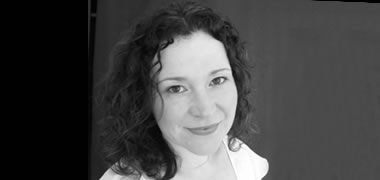
Monday, 24 May 2010
Professor Kathleen Martin Ginis, Professor of Health and Exercise Psychology in the Department of Kinesiology at McMaster University, Canada will give a lecture at NUI Galway on "Innovations in the Study and Promotion of Physical Activity among People with Spinal Cord Injury" as part of the National Centre for Biomedical Engineering Science (NCBES) Biomedical Distinguished Lecture Series on Wednesday, 26 May, 2010, in the NCBES Seminar Room at 3pm. Professor Martin Ginis' research program focuses on psychosocial influences and consequences of physical activity participation. She received her Ph.D. from the University of Waterloo, Canada in 1996 and completed postdoctoral training at Wake Forest University in North Carolina. She received the Early Distinguished Career Award from the North American Society for the Psychology of Sport and Physical Activity and holds a CIHR New Investigator Award. She has published over 100 scientific journal articles and book chapters, and is a co-author of The Psychology of Exercise: Integrating Theory and Practice. Researchers in the NCBES at NUI Galway are currently investigating a range of potential therapeutic approaches to spinal cord injury. Glycoscience researchers are examining the role of glycans, or sugars, in the spinal cord and the role that those sugars play, both positive and negative, in spinal cord repair. Regenerative Medicine researchers are using gene therapy techniques to promote the regeneration of nerves damaged by spinal cord injury. Following acute trauma to the spinal cord a scar develops at the site of injury. This scar tissue inhibits the regrowth of nerves and prevents regeneration at the site of injury. Work is underway to understand the complex biology of scar formation and to develop therapeutic approaches that will prevent or reverse its development. Professor Frank Barry, Director of the NCBES, NUI Galway, said: "Researchers at the NCBES are focused on the development of innovative diagnostic and therapeutic solutions to spinal cord injury and our multidisciplinary approach is essential in addressing complex challenges in medicine and health. We appreciate the importance of alternative approaches when dealing with devastating and intractable medical problems and Dr Martin Ginis' lecture will present that alternative perspective which is both insightful and influential". Professor Gearóid Ó Laighin, Bioelectronics lead at the NCBES noted that the development of systems to support ambient assisted living is one of the themes of Bioelectronics at the NCBES, particularly those systems that encourage physical activity. "It is well established that exercise plays a central role in a healthy lifestyle. Professor Martin Ginis is an international expert in exercise psychology. As engineers attempt to develop more effective systems and devices to support physical activity, they will need to work with Health and Exercise Psychology experts like Professor Martin-Ginis to ensure that new developments incorporate the latest principles in exercise psychology". Professor Martin Ginis will also speak following the launch of 'The Jacinta O'Brien Collection' at the University's James Hardiman Library on Tuesday, 25 May at 4pm in the Martin Ryan Institute Annex Theatre. ENDS
>> Read full story about Expert on Exercise Interventions for Spinal Cord Injury to Speak at NUI Galway
NUI Galway Archaeologists Feature on Nationwide Special
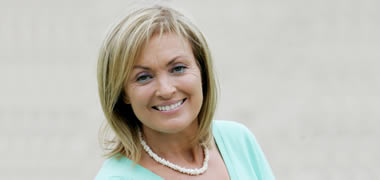
Wednesday, 19 May 2010
On Wednesday, 19 May at 7pm RTÉ's Nationwide will visit the great plain of Rathcroghan, celebrated pre-Christian ritual capital and seat of the kings of Connacht. A team of Archaeologists and Geophysicists based at NUI Galway have been carrying out intensive fieldwork in this area for the past 12 years, building on Professor John Waddell's research of Rathcroghan over the course of three decades. A book detailing the extraordinary results of this work, Rathcroghan: Archaeological and Geophysical Survey in a Ritual Landscape, by Kevin Barton and NUI Galway's Professor John Waddell and Joe Fenwick, was published in 2009. The programme will also look at how the community in Tulsk has interpreted this historic landscape and developed the Cruachan Ai Heritage Centre to help us to understand the history of one of the most important royal sites in Europe. To view the Nationwide programme visit http://www.rte.ie/news/nationwide/. -Ends-
>> Read full story about NUI Galway Archaeologists Feature on Nationwide Special
School Goers Offered Unique Insights at Science Experience Workshop
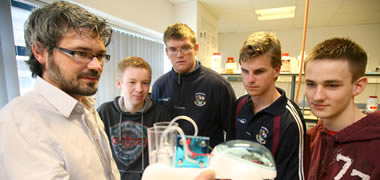
Tuesday, 18 May 2010
The College of Science at NUI Galway is delighted to announce that for the second year running it will host Science Experience Workshops for second-level students. The workshops will take place on 24 and 25 June and students will have the opportunity to delve into a wide range of scientific disciplines and explore future career opportunities. Students, limited to just 100 in total, will take part in unique hands-on activities and experience working in world class research facilities and institutes. Some of the institutes open to the students will include Applied Optics, the Environmental Change Institute, the National Centre for Biomedical Engineering Science and the Regenerative Medicine Institute. These centres are focused on a wide range of world class research activities such as stem cell research, climate modelling (including volcanic ash dispersion forecasting and assessment), next generation lens solutions, and innovative diagnostic and therapeutic solutions to biomedical challenges. Throughout the workshop, attendees also have the opportunity to shadow scientists and gain an invaluable insight into a wide range of scientific disciplines. Dr Mark Foley, Vice Dean of Communications and Strategy, College of Science, NUI Galway, says: "The Science Experience Workshop provides an excellent forum whereby students get information on the diverse range of science activity at NUI Galway. Participants have the chance to see the state-of-the-art teaching, research and sporting facilities while they will also get the chance to experience life on campus while learning about Science and interacting with students, staff and their peers from across the country". This year's event will include participation from the winners of the BT Business of Science & Technology Programme 2010. The third-level summer placements are funded by the Higher Education Authority (HEA). For further information on the College of Science or future Science Experience Workshops, call 091-492182 or visit http://www.nuigalway.ie/science/news.
>> Read full story about School Goers Offered Unique Insights at Science Experience Workshop
NUI Galway Among Researchers Awarded €8.5m for Research Projects
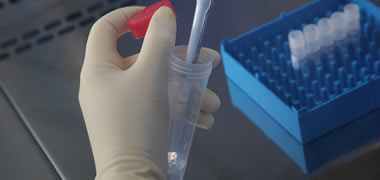
Tuesday, 18 May 2010
Three NUI Galway researchers were among the recipients of the €8.5 million for 47 cutting-edge research projects announced today by Batt O'Keeffe T.D., Minister for Enterprise, Trade and Innovation. Dr Patrick McGarry and Dr Mark Bruzzi from Mechanical and Biomedical Engineering, and Dr Peter Crowley from the School of Chemistry were awarded €539,500 for research projects which will create new jobs for the smart economy. Mechanical and Biomedical Engineering Lecturer Dr McGarry's research, 'An experimental and computational investigation of the effect of strain rate on stress fibre remodelling, nuclear deformation and gene expression in cells', examines the effects of continuously changing forces within our bodies on the shape of our cells. This collaborative project also involves other researchers from the Regenerative Medicine Institute at NUI Galway and UCD and is of interest to the medical device sector in the region. Dr Mark Bruzzi's project, 'Deformation and Fracture of Small Nitinol Structures', investigates the fundamental behaviour of nitinol through the use of both experimental testing and analytical methods. Quantifying how nitinol fundamentally behaves will allow the design and development of better and safer medical devices in Ireland. NUI Galway Chemistry Lecturer, Dr Crowley's research, 'Protein Probes: From Self-Assembly to In Vivo Trafficking', focuses on proteins which are large molecules that enable cells to grow and divide. This project will develop new tools to stick proteins together and develop our knowledge of how proteins get inside cells. The research will contribute to progress in the area of therapeutics. Minister O'Keeffe said the research areas are "profoundly linked to our health and wellbeing and the researchers' work will generate high-value downstream jobs". "The €8.5 million investment will create jobs and training opportunities for 105 researchers, mainly PhD students, and their work will in turn generate new jobs down the line which will have significant implications for our well-being as a nation," said Minister O'Keeffe. The 47 research projects are being funded under Science Foundation Ireland's Research Frontiers Programme. The programme supports internationally-competitive, high-quality exploratory research in higher education across the science, maths and engineering disciplines. "By helping researchers at a relatively early stage in their work, the programme is targeting our most promising scientists in building their research teams and track records and enhancing our competitiveness," said Minister O'Keeffe. Director General of Science Foundation Ireland, Professor Frank Gannon, said: "The Government's goal of becoming a hub for international research is further advanced by this Research Frontiers Programme investment. "Ireland's performance in the fields of scientific and engineering research is directly linked to our future competitiveness and our quest for a measurable transformation to the smart economy. Last year, the Research Frontiers Programme resulted in many notable outcomes such as 88 collaborations with 83 companies, 715 academic collaborations, and 537 scientific papers. "The programme has contributed to Ireland's rapid ascent in the ranking of scientific output, rising from 36th place in 2003 to recently breaking into the top 20. Ireland has joined countries such as Finland, Germany and the US in the scientific output stakes," Professor Gannon concluded. -Ends-
>> Read full story about NUI Galway Among Researchers Awarded €8.5m for Research Projects
Invasive Seaweed Types Spreading Across Europe
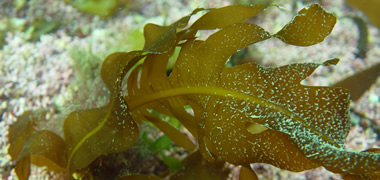
Tuesday, 18 May 2010
Important Research conducted at NUI Galway published by Royal Society A European project involving Irish scientists from NUI Galway and Queen's University Belfast has found that recently introduced seaweed types from areas such as Japan and California are spreading more rapidly in Europe than ever before. Professor Mark Johnson with The Martin Ryan Institute (MRI) at NUI Galway is the corresponding author on a paper which has gone online in the Proceedings of the Royal Society. The essence of this paper denotes how particular species of seaweed introduced to Europe have spread. This includes an increasing rate of spread in recent years. There are over 500 seaweed types in Ireland, and some 126 non-native species from Asia and the US have been recorded in Europe over the past century. The research paper published by the Royal Society (Fronts, Jumps and Secondary Introductions Suggested as Different Invasion Patterns in Marine Species, with an Increase in Spread Rates Over Time) is one of the outputs from a project known as ALIENS (Algal Introductions to European Shores). The research ran over four years and focused on the ecology, spread and impacts of introduced seaweeds. Professor Johnson remarked, "Research of this nature has relevance for marine and aquaculture policy into the future. This involves continuing with existing approaches to educate boat owners to clean their boats in order to stop the spread of invasive species of seaweed and protect native varieties. There are also efforts to control the spread with restrictions throughout the aquaculture industry. At present, some invasive species of seaweed can crowd out or displace native plants. It is important that we continue to protect our native species." PhD student Frederic Mineur, who worked with Professor Johnson on the project reconstructed the historical spread of seaweed dating as far back as 200 years ago. Species of seaweed introduced to a region often spread out from the point of introduction at a relatively even rate. However, other patterns can also occur. Most seaweeds introduced to Europe appear to have been introduced at more than one point or have unpredictable long range dispersal. Looking at the spread patterns over time, the rate of spread appears to be increasing for more recent introductions. This could be because there are more opportunities for seaweeds to associate with carriers like shipping or aquaculture. Another possibility is that the resistance of coastal environments to novel species' introductions is declining. This current study is complete but there are plans to extend the work to understand more about the dispersal of introduced species. There may be particular routes that more than one species has travelled by within Europe and conversely there may be barriers within Europe to the spread of species. To access the article featured in the Royal Society, follow the link below. http://rspb.royalsocietypublishing.org/content/early/2010/04/20/rspb.2010.0494.abstract -Ends-
>> Read full story about Invasive Seaweed Types Spreading Across Europe















